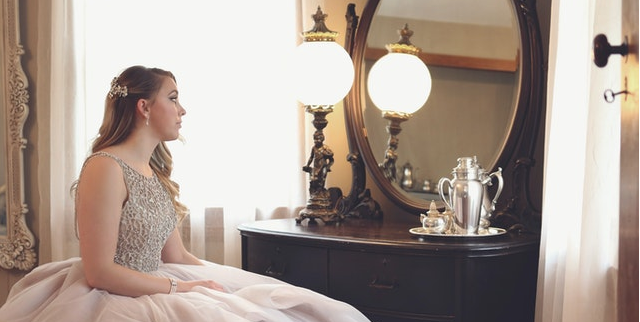Guiding Teens Through Loss Toward Resilience
- Written by Anne Heinrich

For once, we had our big dance affairs in order.
We’re usually on a last-minute, mad scramble to find the perfect dress for whatever the next big event on my teenage daughter’s social calendar might be. But this year, we had it in the bag.
We found the perfect dress for her senior prom months ago. She looks like a million bucks in it, a little too grown up, but I was prepared for that. To make matters even better, it didn’t need any alterations. Not one. The dress fits like a glove, which is perfect when your mom doesn’t sew. My only first-world complaint was that it was all coming just a little too fast for me. But time marches on, until, of course, it comes to a complete, abrupt standstill. And with the pandemic, that’s exactly what has happened.
Prom night came and went without the dress, the date, the flowers, the pictures, the reminders to stay safe and make good choices--all the stuff that comes with that particular milestone so iconic and worth capturing to savor. Like millions of her peers, my daughter did not get to attend prom. That celebration, along with all of the other year-end events, including graduation, has been tabled as we hunker down to do the right thing, social distancing to limit the spread of COVID-19.
I joined in with some other moms, who had the good idea to decorate our front doors that day to honor our girls. Our front door has a giant poster of our daughter as a member of the varsity dance team, with red and white streamers. That morning, she tried the dress on, and as I watched her tilt her head to the side as she stood in front of the mirror, I caught a huge lump in my throat that took nearly the rest of the day to dissolve. On prom night, my daughter watched movies with us and we ordered barbeque. We were subdued.
I am keenly aware, as is my daughter, that missing prom pales in comparison to the loss of livelihood and lives that we’re seeing unfold on an hourly basis. People can’t afford food and are burying their loved ones who have been forced to die alone. The dress can hang in the closet a little longer. My daughter and thousands of high school seniors who are also forced to tread water while the world falls apart, then heals, will survive. As much as we’d like to shield them from the impact of what’s happening in the world around them, this time it’s not possible. I’m not a perfect parent. Not by a long shot. But I’m no rookie either. So here’s what I think is the best way to help teenagers and young adults handle the whole disappointing, frustrating and frightening situation that COVID-19 has forced upon us:
Simply acknowledge emotions and validate them. We can be horrified that the world is experiencing a life-altering pandemic and also be disappointed and sad that some of our long-anticipated celebrations are simply not going to unfold in the way we imagined they would. The two realities can co-exist, and in fact, do.
Just be honest. They are consuming news just like we do, and although their frontal lobes are not yet fully developed, most teens can handle the truth. It’s also important to find a nice balance between “the sky is falling” and “this will be over soon.” Let them know that we all just have to take it one day at a time, and it’s okay to let them see their parents being impacted, too.
Let them take the lead. I don’t force the conversation, but when my daughter expresses a concern or a worry, I try to just stop and give her what she needs at that moment. Sometimes that’s a hug, or a night watching a movie, and sometimes, she just wants to be left alone.
Just let them know this isn’t what you had in mind, either. I’ve acknowledged to my daughter many times how sorry I am that the end of her last year in high school came to an abrupt halt and that everything is so uncertain. We’ve talked a lot about better days ahead, given a vigorous nod to how great it will be when things are normal again and how easy it is to take what we have for granted.
When I say that I hope the pandemic is the last hurdle she has to face, I really do mean it, and I’ve also lived long enough to know that’s not likely. Still, I’m hopeful. Already, I’m watching my daughter pivot to a place that has always come pretty naturally to her: finding a way to own her circumstances with humor, empathy, resilience and intelligence that will serve her and the world she lives in well.
Interested in reading more about how COVID-19 is impacting young people? Check out this article from The New York Times and this story recently published by NPR.
About the author
 Anne Heinrich is Vice President of Development for Mental Health America of Eastern Missouri. She has worked in communications and the nonprofit sector for over 30 years. She and her husband, Bret, live in the St. Louis area, and have three children.
Anne Heinrich is Vice President of Development for Mental Health America of Eastern Missouri. She has worked in communications and the nonprofit sector for over 30 years. She and her husband, Bret, live in the St. Louis area, and have three children.






















